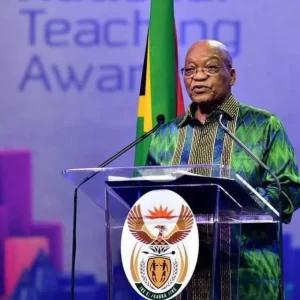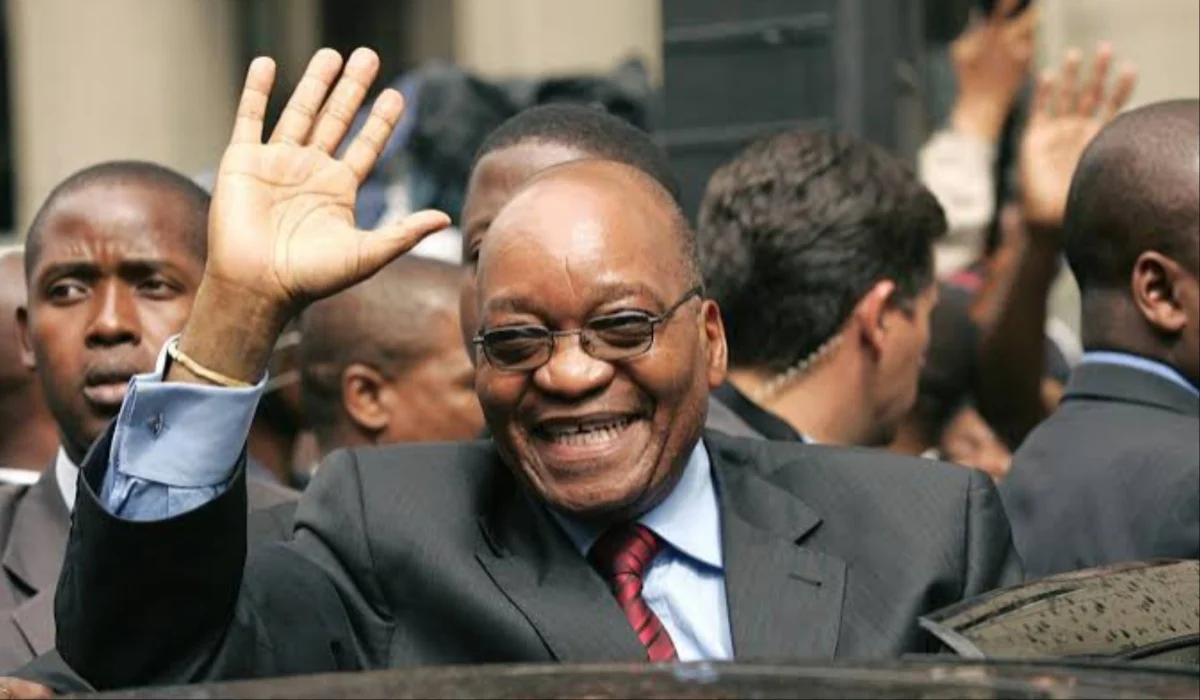Former president’s prison sentence disqualifies him from contesting for new MK party in a ruling that could influence general election outcomes.
Jacob Zuma in The MK Party
Zuma, who stepped down from the presidency in 2018, has since distanced himself from the ruling African National Congress (ANC). He has been actively promoting a new political entity, uMkhonto we Sizwe (MK), named after the ANC’s historical armed wing.
Current opinion polls indicate that the ANC’s three-decade dominance is under threat, with MK posing a notable challenge, especially in Zuma’s stronghold, KwaZulu-Natal.
Reasons why Jacob Zuma is disqualified
The constitutional court case emerged following the South African electoral commission’s March decision to disqualify Zuma. According to the constitution, individuals sentenced to 12 months or more in prison are prohibited from holding parliamentary positions.
ALSO READ: Methodist Pastor’s Former Wife Queen Nandi Explains Why She Dumped Her Husband For The Streets

Zuma received a 15-month jail sentence in 2021 for contempt of court, having failed to attend a corruption inquiry. In April, a lower court overturned his disqualification, stating that the constitutional provision applied only to those who had been granted an opportunity to appeal their sentences—a condition Zuma did not meet.
However, the electoral commission contested this reversal, bringing the matter before the constitutional court.
Constitutional Court’s Ruling
On Monday, the constitutional court declared: “It is affirmed that Mr. Zuma was convicted of an offence and sentenced to more than 12 months’ imprisonment … therefore, he is not eligible to be a member of, nor qualified to stand for election to, the national assembly.”
This definitive ruling eliminates Zuma’s parliamentary aspirations and could reshape the political landscape, especially given his significant following in KwaZulu-Natal.
ALSO READ: Jabulani Khumalo Seeks To Remove Jacob Zuma As Face Of MK Party
Aftermath of Zuma’s Imprisonment
In 2021, Zuma’s imprisonment incited violent riots in KwaZulu-Natal, resulting in over 300 deaths and escalating into widespread looting and chaos. This period of unrest highlighted the deep-rooted tensions within South African society and the volatile nature of its political environment.
